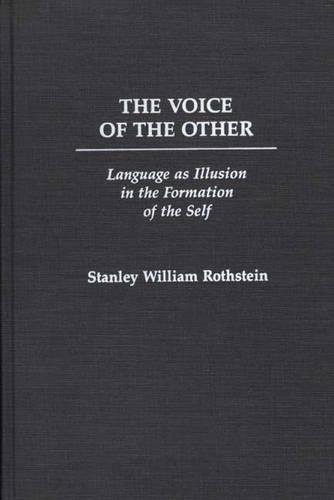
The Voice of the Other: Language as Illusion in the Formation of the Self
(Hardback)
Publishing Details
The Voice of the Other: Language as Illusion in the Formation of the Self
By (Author) Stanley Rothstein
Bloomsbury Publishing PLC
Praeger Publishers Inc
30th November 1992
United States
Classifications
Tertiary Education
Non Fiction
Psychology: the self, ego, identity, personality
Child, developmental and lifespan psychology
Philosophy of mind
155.2
Physical Properties
Hardback
192
Description
This work introduces the concept of the "voice of the other" and the intersubjective world it creates for humans. The unconscious processes of speech and language are deeply identified with the ego. In the movement from nature to civilization, the newborn is mastered by language and becomes part of the social world of his parents. The child's thought is structured by parental language and speech as well as by memories stored in the unconscious. What is real for the individual is composed only of the images and words that define them. Even family and school relationships are structured in language and the social formations that language created in the past. The imaginary and symbolic functions of the mind form ideologies that bind people together and help them to make sense of their world. In schools this leads to submissive students and constant teacher-student conflict. The author uses the works of Freud, Lacan and Marx to situate schooling in capitalist society. He employs psychoanalytic, linguistic and anthropological perspectives in an attempt to discover how we think and communicate with one another using unconscious processes.
Author Bio
STANLEY WILLIAM ROTHSTEIN is Professor of Education, in the Graduate Department of Education Administration at California State University, Fullerton./e He is the author of Identity and Ideology: Sociocultural Theories of Schooling (Greenwood Press, 1991) and other books. Presently he is editing an academic Handbook of Schooling in Urban America for Greenwood Press and preparing a new book, The Phenomenology of the Imaginary.
